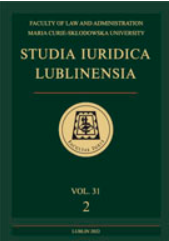The Advisory Jurisdiction of the Permanent Review Tribunal of the Southern Common Market
The Advisory Jurisdiction of the Permanent Review Tribunal of the Southern Common Market
Author(s): Edyta LisSubject(s): International relations/trade, Law on Economics, Financial Markets, EU-Legislation, Comparative Law
Published by: Wydawnictwo Naukowe Uniwersytetu Marii Curie-Sklodowskiej
Keywords: advisory opinion; dispute settlement mechanism; Mercosur; Permanent Review Tribunal; integration processes;
Summary/Abstract: The 30th anniversary of the signing of the Asunción Treaty which provided the basis for the creation of the Southern Common Market (Mercosur), was 26 March 2021. It is an economic integration process of all the markets in South America and the fifth economy in the world. The main goals of Mercosur include ensuring free trade and movement of goods, capital, services and people by eliminating custom duties, tariffs and other restrictions and establishing common external tariffs. During this time, the Member States as well as Mercosur itself undergone some significant changes. The evolution of integration processes has also been accompanied by development in the Mercosur dispute settlement mechanism. One significant modification was the establishment of the Permanent Review Tribunal (the PRT), which has contentious and advisory jurisdiction. Advisory opinions are still an underestimated tool in solving legal issues. Scholars primary focus on contentious jurisdiction of international tribunals, omitting or underestimating the value of advisory jurisdiction. Notwithstanding, advisory opinions issued by international tribunals are usually legal advice on a point of law, it is sometimes noted that they may be even seen as an integration instrument. This article argues that due to the non-binding character of advisory opinions they are a useful instrument of standardization of Mercosur law, strengthening integration processes and enabling the fulfillment of objectives set forth in the Asunción Treaty. The extent of their impact depends not only on the PRT itself, but also on whether the entity that has requested the advisory opinion, in particular the supreme national courts, is willing to follow the PRT guidance. This article contributes to the discussion on the impact of advisory opinions on the development of integration processes.
Journal: Studia Iuridica Lublinensia
- Issue Year: 31/2022
- Issue No: 2
- Page Range: 181-205
- Page Count: 25
- Language: English

